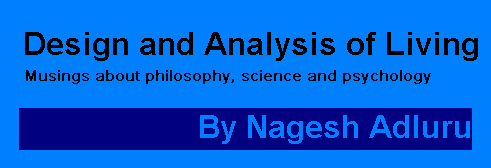I wanted to write this post in late September 2007 when I was still figuring out how to create enough value for my work in computer vision and robotics that would be worth an average PhD from CIS department at Temple University. Growing up in a country not only with low resource/population ratio and system's quite immature (relative to US standards: look we need some standards and I prefer US standards!) it was a common thing to hear "Half-knowledge is dangerous". Such perspectives are so deeply rooted in the culture that risk taking is almost impossible (probabilistically people who take risk is roughly 0.000001=1/Million).
Risk for potential embarrassment and failure is a necessity for growth! This assumption was revived after watch season 1.4 of The Universe which inspired me to finish this post. One episode on "Beyond Big Bang" was really appealing as it showed the journey of humans' theorizing about the universe. History channel put together these events nicely in perspective of how the current established theory (still of course incomplete) about universe is an outcome of so many attempts which were either only partially correct or wrong. So essentially we all survived through "half-knowledge" phases and still do not have complete knowledge about anything. There are dangers in having half-knowledge but this is a necessary transitional stage to attaining full-knowledge as it is continuous process. So it always essential to be able to afford half-knowledge.
To afford half-knowledge we need to create value which is a very important part of the survival business. Creating value obviously needs forward filtering and backward smoothing by developing models, gathering observations and evaluating them by communicating with the rest of the human community. The key point I want to make though is that we need to start with some model, some proposal distribution, some importance weighting scheme so that we can eventually get it right. The point is there's is no point in waiting for ever to get it all right since that would mean not being able to afford half-knowledge. Scientists or systems that can afford half-knowledge are analogous "bullet-swallowers" unlike "bullet-dodgers". So questions like: When are you ready to graduate? When is a romantic relationship good enough for marriage? How much money do I need to open a company? When do you sell a product? etc. all can be answered only if we can "swallow" and create value to be able to afford half-knowledge.
Saturday, July 25, 2009
Subscribe to:
Post Comments (Atom)

No comments:
Post a Comment